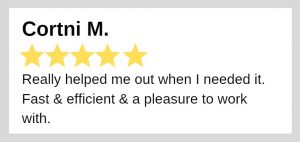
If you’re wondering what the process is for paying cash for a house you want to buy, then our blog post today we’ll enlighten you.
For many of us, the cost of monthly payment takes a large part of the household income. However, financial experts recommend keeping monthly payments at or below 40 percent of your monthly salary, before tax. Forty percent should be the maximum.
Extra Money
Paying cash for a house, however, allows you to have hundreds or even thousands of extra money to add to your monthly budget; since you’re not allotting anything to monthly housing payments.
With that being said, you’re still required to pay the property tax and insurance fees. This doesn’t change the fact that paying cash for a house is a total game changer when it comes to the buying process.
In a lot of ways, it makes the buying process a lot simpler. However, you need to keep in mind the essential differences from the beginning of the process.
It’s Not Ideal to Pay with Cash If…
Before we delve into the pros of paying with cash, let’s discuss the cons first. Keep in mind that these cons may not necessarily apply to your specific circumstance.

The obvious pro, as we discussed above, is no more housing payment to be deducted from your monthly expenses – which means more extra money for you. Whether it’s for spending or saving is entirely up to you.
There’s also the major pro of total ownership of the property. No longer will you need to be tied to real estate or economy crashes. You’ll always have that property as an investment – and many people find comfort and peace of mind in that.
Before you start saving money to pay cash for your next home, keep in mind that when you do pay with cash, you’re committing a significant portion of your total net worth in one investment.

That may seem like a daunting undertaking, especially since financial experts recommend diversifying when it comes to investments. Unless you have a large amount of wealth you can confidently put into paying with cash for a house, you’ll be investing in something that may lose value.
Being Liquid
Paying with cash right off the bat also means you’re giving up liquidity. This means that if you, for instance, need $1000 or more for an emergency, you may have to borrow money.
What About Tax Deductibles?
Another consideration to keep in mind when paying with cash is the tax deductibility the interest acquired every year. This predicament is more of an issue for first-time home buyers; most of their monthly funds go towards interest instead of the principal payment.
Paying with cash means your income taxes are no longer affected by the interest you spend on the mortgage. With that being said, the money you save from not paying interest may well be worth it.
Security and Peace of Mind When You Pay with Cash
Knowing that you own your house completely with no monthly payments tied to it can help you feel secure and comforted. It will also give you peace of mind to know that there will always be a home for you no matter what happens.

With cash payment, you also won’t have any interest to pay. Say you bought a property for $250,000. If you put a 20 percent down payment at an interest rate of 4.5 percent, you’d pay about $5,0000 per year.
You Have More Leverage As a Cash Buyer
When you have cash ready, you’re a more eligible buyer. Sellers and real estate agents will place more value to your capabilities as a buyer. This is because there won’t be any concern of your finances falling through after you’ve made an offer to a property.
Paying cash for a house also gives you more leverage in a competitive housing market. You can even potentially lower your bid and still win since you have the funds all ready to go.

No Extra Legwork
As a cash buyer, you wouldn’t have to worry about any extra work gathering paperwork and submitting everything to your lender when you’re at the end of the buying process. When you close the deal, there also shouldn’t be any additional hassle; you only have to worry about cash transfer.